People say that what we’re all seeking is a meaning for life. I don’t think that’s what we’re really seeking. I think that what we’re seeking is an experience of being alive, so that our life experiences on the purely physical plane will have resonances with our own innermost being and reality, so that we actually feel the rapture of being alive.”
― Joseph Campbell
Let’s be honest, most of modern life feels hollow because it is hollow. You’ve felt it. I’ve felt it. That strong sense that something’s missing like we’re sleepwalking through our days, numb to the pulse of life. Like we’ve forgotten how to truly experience. We are obese with consumption but still starving, starving for beauty, for meaning, for the visceral experience of being fully human!
This isn’t just a cultural critique, it’s an existential one. We are, as Heidegger put it, “thrown” into existence. We didn’t ask to be here, and yet here we are, tasked with the burden of creating meaning in a world that often feels indifferent to our struggles.
The Crisis of the Modern Soul
In Plato’s allegory of the cave, prisoners mistake shadows on a wall for reality, their backs turned to the light that illuminates true existence. We are no different. Chained by the shallow standards of modern society, we confuse fleeting pleasure for joy, productivity for purpose, and performance for authenticity. Our very life force is being sold off, replaced with the numbing hum of endless distractions.
The things that give life its essence, our ability to love deeply, to create boldly, to pursue our passions, to commit fully are being sold off. In return, we’re handed cheap thrills and hollow amusements.
Our light is dimmed. Our energy is stolen. And the vividness of existence fades into grayscale.
Life is not a straight line, it’s a series of fractures and reconfigurations. Events big, medium, and small are the moments where these fractures occur. They are the points where the old self cracks open, and the new self begins to emerge. But not all events are created equal. Some are seismic, like the death of a loved one or the birth of a child. Others are quieter, like a conversation that shifts your perspective or a decision to say “no” when you’ve always said “yes.” What ties them together is their power to transform us. They force us to confront who we are, who we’ve been, and who we might become.
Yet, in the modern world, we’ve become interestingly “skilled” at avoiding these moments. The very moments that might make us truly who we are, we numb ourselves with distractions, cling to lethargic routines, and tell ourselves that we’re too busy, too tired, too afraid. But the truth is, we’re not just avoiding events, we’re avoiding ourselves. And in doing so, we’re missing out on the very thing that makes life worth living, the rapture of existence.
The Spectrum of Events: Big, Medium, and Small
Events exist on a spectrum. At one end are the big events, the milestones that mark our lives. These are the moments we can’t ignore: a marriage, a divorce, a career change, a diagnosis. They force us to confront the fragility of our existence and the impermanence of everything we hold dear. They are the earthquakes that shatter the foundations of our identity, leaving us no choice but to rebuild.
But not all events are earthquakes. Some are tremors—medium events that shake us just enough to make us question our assumptions. These are the moments when we take a risk, when we step outside our comfort zone, when we say “yes” to something that scares us. They might not change our lives overnight, but they plant seeds that grow over time. A medium event could be as simple as signing up for a class, reaching out to someone you admire, or deciding to quit a job that’s draining your soul.
And then there are the small events, the moments that seem insignificant at first glance but carry profound weight. These are the conversations, the walks, the decisions to put down your phone and really listen. They are the micro-shifts that, over time, add up to something larger. A small event might be the moment you choose to speak up in a meeting, the decision to take a different route home, or the act of writing a letter to someone you’ve been meaning to reconnect with.
What ties these events together is their ability to create identity shifts. They force us to confront the gap between who we are and who we might actually be. And in doing so, they push us to grow. Simple as taking a walk when the urge to doom-scroll strikes. Steping outside, feeling the wind on your face, seeing the trees swaying, noticing the sky stretching endlessly above. In that small act of rebellion against distraction, you create an event—a moment where life unfolds in its raw, unfiltered beauty. It’s not just a walk, it’s an encounter with existence.
Meeting up with good fulfilling friends on a regular basis is another kind of event—a rapture of community. The laughter, the shared stories, the simple act of being together creates a sanctuary in a world that often feels disconnected. These moments remind us that we are not alone, that life’s meaning is often found in the spaces between us.
Even preparing a meal with care can be an event. The chopping of vegetables, the aroma of spices, the act of nourishing yourself or others, it’s a ceremony of life. It’s a declaration that even the “regularness” of life can be sacred if you choose to see it that way.
One of my favourite examples of this would be talking to strangers in a friendly, open manner or building a habit of checking in on people you care about—these small, deliberate actions are the subtle threads that weave us into the greater web of being human. They may appear insignificant at first glance, but they create profound shifts in how we experience the world and each other.
Imagine standing in line at a café, your instinct pulling you toward the comfort of your phone, away from the people around you. Instead, you look up and offer a smile or a kind comment to the person next to you. That tiny moment of engagement is an event. It breaks the invisible wall of indifference that often separates us. For a fleeting moment, you glimpse the humanity in another person, and they in you. It’s a reminder that we’re not just moving through life in isolation, we are part of a living, breathing mosaic of connection.
The habit of checking in on people, a quick call, a thoughtful text, or a heartfelt question, has a similar power. It’s not just an act of kindness, it’s a declaration of presence. When you reach out to someone, you aren’t just offering support, you’re anchoring yourself in the intricate network of relationships that define your life. These small actions create raptures of community, moments where the boundaries of self dissolve, and you feel the pulse of something larger. They tether you to meaning, to purpose, to the realisation that we are not solitary figures but interconnected beings.
In these small events, the world begins to soften, the world beigns to smile back at you. Strangers transform into allies, acquaintances into friends, and the fabric of reality itself seems less hostile, more welcoming. You start to see reflections of yourself in others, not just in their triumphs but in their vulnerabilities, fears, and hopes. These moments don’t just change how you view the world; they change how you inhabit it. They shift you from observer to participant, from isolation to inclusion.
Small, consistent actions like these act as gentle rebellions against the pervasive disconnection of modern life. They remind you that rapture doesn’t always roar, sometimes, it’s quiet subtle like in the form of a shared laugh, a lingering conversation, or the realisation that someone thought of you enough to check in. Each of these moments is an invitation, to step into the light of connection, to see yourself as part of the bigger web, and to let that web hold you in return.
Fear as a fertile ground for rapture
Fear is often seen as something to avoid, a signal to retreat. But fear is a fertile ground, rich with the potential to heighten our existence. To confront fear is to step into the unknown, to playfully engage with reality in a way that transforms it into something vivid and alive.
Consider the moments when you’ve felt fear, before speaking your truth, before taking a risk, before making a leap into something uncertain. Those moments, when faced with courage and action, become transformative events. They force you to grow, to expand, to connect with parts of yourself you didn’t know existed.
Using fear as a guide doesn’t mean acting recklessly. It means acknowledging fear as a signpost pointing toward what matters. It’s the vulnerability of saying, “I love you” without knowing if it will be returned. It’s the boldness of starting a project that might fail. It’s the thrill of stepping onto a dance floor, even if you’re not sure of the steps. In these moments, fear becomes a catalyst for creation and connection.
“Vulnerability is the birthplace of innovation, creativity, and change.”
- Brené Brown
Fear, when paired with action and a playful willingness to engage with the world, transforms into a rapture that makes life electric!
The Role of Self-Assertion and Willingness
From a psychological perspective, events are moments of integration. They are the points where the fragmented pieces of our selves, our thoughts, emotions, and experiences, come together in a way that feels whole. Carl Jung called this process individuation: the journey toward becoming who we truly are. Events, in this sense, are not just external happenings; they are internal awakenings. They are the moments when we step out of the shadows of our conditioned selves and into the light of our authentic being.
Events don’t just happen to us, we also create them. This is where self-assertion comes in.
Play a symphony of unimaginable beauty, and it might barely register.
Read the most profound poem, and it may drift past unnoticed.
Show a masterpiece of art, and it might draw only a passing glance.
Offer the raw, unfiltered truth of a real connection, and it might feel uncomfortable, even intrusive.
We’ve lost our ability to truly feel. Our emotional muscles, atrophied by a steady diet of shallow distractions, no longer stretch toward the depth of life. Instead of rapture, we settle for amusement. Instead of truth, we accept spectacle. The standards by which we live are broken, utterly distorted.
This is why self assertion is necessary! Self-assertion is the act of saying, “This is who I am, and this is what I want.” It’s the decision to take up space, to claim your voice, to live on your own terms. Without self-assertion, events lose their transformative power. They become things that happen to us, rather than things we actively participate in.
Take, for example, the story of Viktor Frankl, the psychiatrist and Holocaust survivor. In the concentration camps, Frankl faced unimaginable suffering. But even in the midst of that horror, he realized that he had a choice: he could let the circumstances define him, or he could assert his own meaning. He chose the latter. He began to see his suffering not as a punishment, but as a test of his humanity. This act of self-assertion, this decision to create meaning in the face of meaninglessness, became the foundation of his life’s work.
Self-assertion requires willingness, the willingness to step into the unknown, to risk failure, to embrace uncertainty. It’s the willingness to say, “I don’t know what will happen, but I’m going to do it anyway.” This is where courage comes in. Courage isn’t the absence of fear, it’s the decision to act in spite of it.
The Rapture of Living Fully
“To live is the rarest thing in the world. Most people exist, that is all,” wrote Oscar Wilde. To live fully is to reject the life of conformity and embrace the uncertainty, the messiness, and the wonder of creating your own reality.
When we live without events, we live without meaning. Viktor Frankl, argued that meaning is not something we find, it’s something we create. And we create it through events—through moments of connection, of courage, of creation. Without these moments, life becomes a series of tasks, a checklist of obligations. We go through the motions, but we don’t truly live.
The psychological toll of this is profound. Without events, we become fragmented, disconnected from ourselves and others. We experience what the psychologist Erich Fromm called alienation, a sense of being separate from the world, from others, even from ourselves. This alienation manifests as anxiety, depression, and a pervasive sense of emptiness. We feel like we’re missing something, but we can’t quite name it. What we’re missing is the rapture of existence, the moments that remind us of who we are and why we’re here.
This requires more than just intention, it DEMANDS action. You must dare to feel, to risk vulnerability, to confront the fear of failure and rejection. Life’s rapture again is found in those moments when you stretch yourself beyond comfort when you step into the unknown and discover parts of yourself that are hidden in the shadows.
One way to do this is through ritual. Rituals are events imbued with meaning. They can be as simple as a morning walk, a weekly dinner with friends, or a daily practice of gratitude. What makes a ritual a ritual is not the action itself, but the intention behind it. It’s the act of saying, “This matters. This is sacred.”
To awaken the vividness of life, you must actively create events, moments that are charged with meaning and presence. These events don’t need to be grand or elaborate. They can be as simple as watching the sunrise in silence, holding a loved one with unguarded affection, or pursuing a passion that scares you. What matters is that they shake you awake, reminding you of the brilliance of existence.

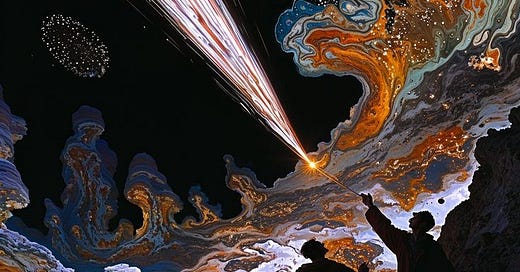



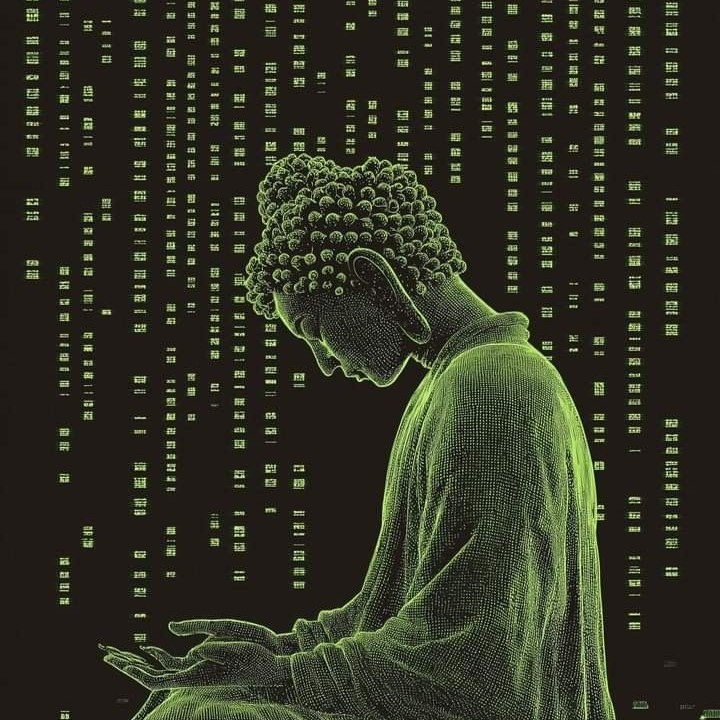
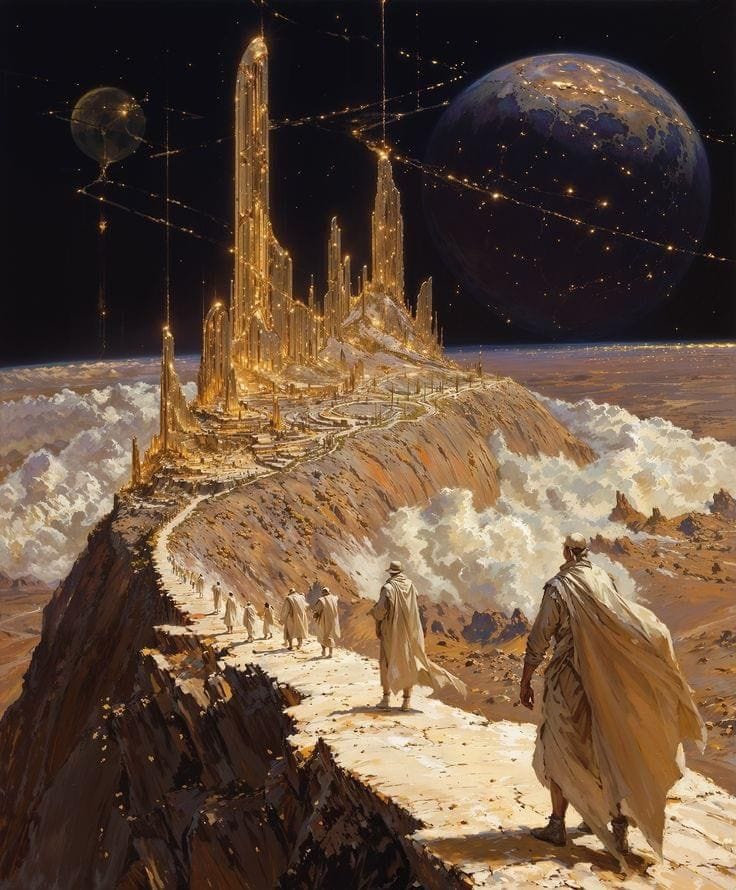
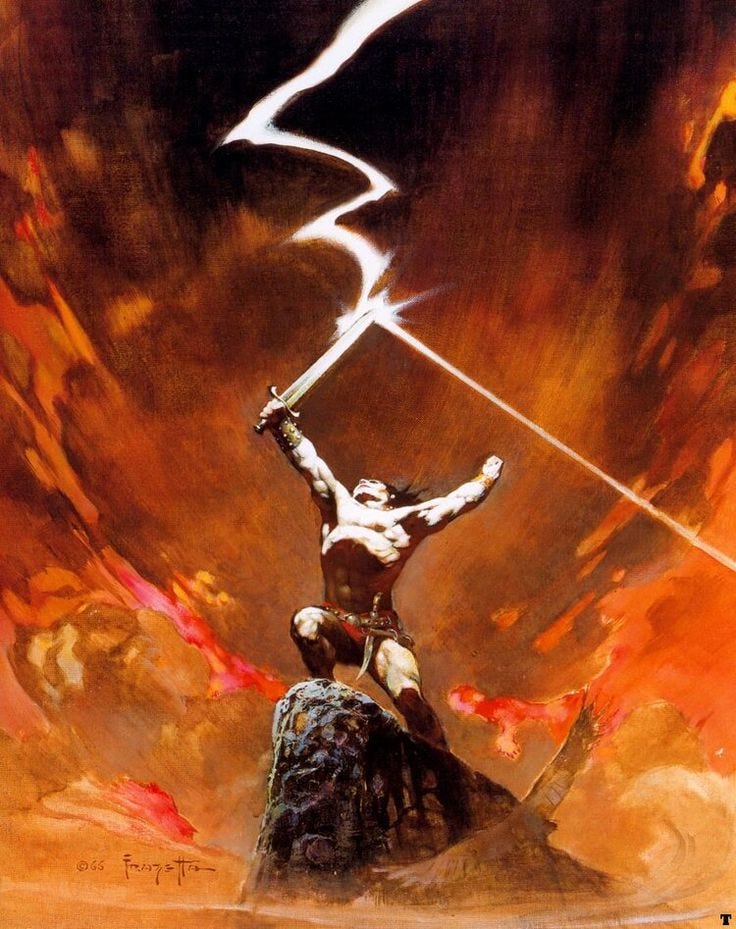
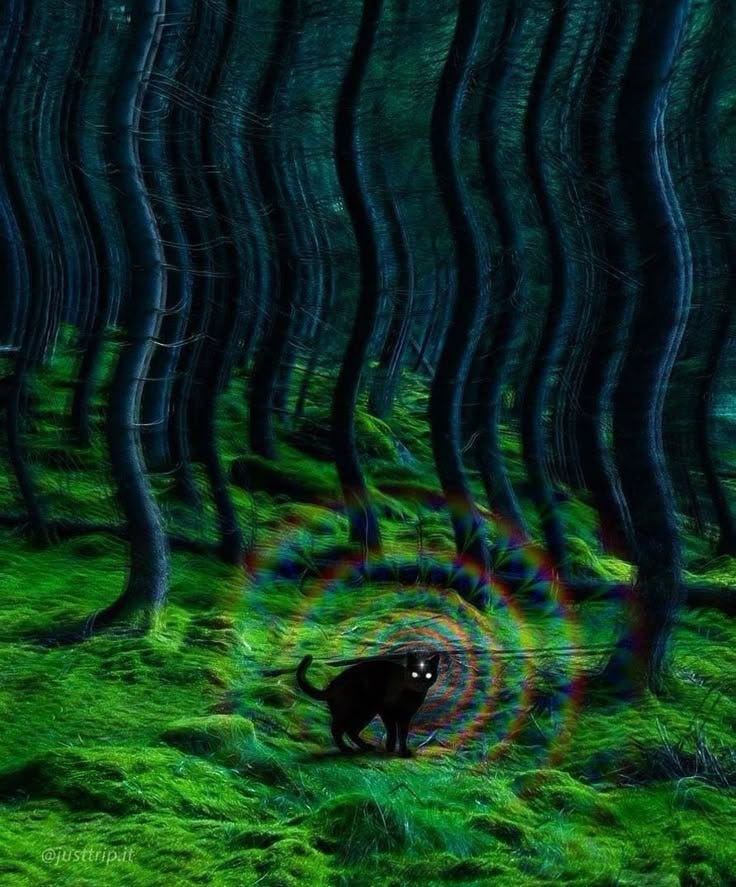
Excellent piece brother. I have been writing on singing about the importance of small ordinary events and now I have to discard it because this hit it on the head in a way that I don’t think I can add to or improve upon. So to the scrap pile and start from scratch lol.
I enjoyed this, it’s poetic, it’s realistic and it’s actionable as well.
Amazing